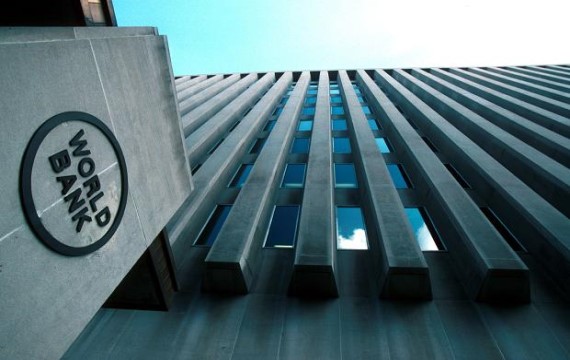World Bank deleted its recent education report showing the Philippines’ struggling education system, citing its failure to communicate with the government.
It was referring to the report titled “Improving Student Learning Outcomes and Well-Being in the Philippines: What Are International Assessments Telling Us? (Vol. 2): Synthesis Report Presentation” that was released on June 28.
It can no longer be accessed on World Bank’s official website, as of writing.

In a statement on July 8, the World Bank expressed its apology to the Department of Education for the “oversight.”
“We deeply regret that the report on education was inadvertently published earlier than scheduled and before the Department of Education had enough chance to provide inputs,” it said.
“This was an oversight on our part, and we conveyed our personal apologies in our communication with the government. Recognizing the inadvertent release of the report, we have taken steps to temporarily remove it from the website,” it added.
The financial institution also noted that it is aware that the problems with the country’s education system have a “long historical context.”
It recognized the department’s efforts to resolve these long-running issues.
“We are aware of the Department’s various efforts and programs to address the challenge of education quality. We agree with the Department that the issue of quality has a long historical context, and support its demonstrated commitment to resolve it decisively,” it said.
World Bank stated that it has already reached out to Education Secretary Leonor Briones about this matter.
“We have reached out to Secretary Briones on this matter and look forward to continuing our dialogue with the Department of Education on the opportunities and challenges in the education sector,” it said.
This response came after Briones demanded an apology from World Bank over the report that bared Filipino students not meeting learning standards.
Briones called for an apology in a Palace press briefing after she was asked if the World Bank’s intention in issuing the report was to secure more loans from the country.
“Sa tingin ko, apology muna. Kasi pinadalhan ako ng sulat personal apology but hindi naman ako ang natatamaan dito, ang natatamaan ang bansa [unclear] publiko,” Briones said.
Briones also claimed that the country was ashamed and insulted by the release of this report.
“And since the country was insulted, was shamed and so on, we expect and look forward to a public apology lalo na iyong hindi pagsabi sa amin na naglabas sila ng ganoong klaseng datos na lumang-luma na datos,” she said.
On Thursday, the Department of Finance supported DepEd in its call for a public apology from World Bank.
“The failure of Bank officials to follow the protocol of consulting with the DepEd prior to publication further illustrates the lack of professionalism which we come to expect from the World Bank and its staff. Such a Report should be taken out from the Bank’s website as not to further mislead the public. We also believe that a public apology to the DepEd and the National Government is in order,” Finance Secretary Dominguez III said in his letter to to World Bank Group President David Malpass.
The bank’s controversial education report bared that more than 80% of the Filipino students fell below minimum proficiency levels that are expected for their grade levels in all three global assessments such as the following:
- The Program for International Student Assessment (Pisa) – first participation in 2018
- The Trends in International Mathematics and Science Study (TIMSS) – first participation in 2019 after 16 years of hiatus
- The Southeast Asia Primary Learning Metrics (SEA-PLM) – first cycle in 2019
RELATED: Numbers back World Bank’s report on Philippine education system in ‘crisis’

